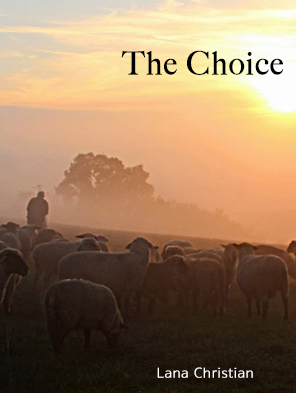
Do you consider yourself a dangerous person?
I don’t mean bungee jumping off Niagra Falls. (That’s not allowed. Plus, it’s brainless.)
We’re wired for survival, so diving into danger gives most of us cause for pause. Watch just one quarter of pro football. On fourth down with one yard to go, coaches will virtually always punt the ball, even though statistics bear witness—with two-to-one odds—that the team will make the yardage. A safe play doesn’t draw criticism or jeopardize a coaching contract.
I’m a Christian, and I’m an author, in that order. Writing forces me out of my comfort zone. But what does living dangerously as a Christian entail?
God’s calling and our willingness to respond.
God created each of us for a purpose. But He didn’t create us to live in safety and security. Comfort isn’t His concern for us. Courage is.
In his book Seizing Your Divine Moment, Erwin McManus says, “The center of God’s will is not a safe place, but the most dangerous place in the world—because God fears nothing, and He fears no one. And God moves with intentionality and power. To live outside God’s will puts us in danger. But to live inside God’s will makes us dangerous.”
In that respect, danger is in a Christian’s DNA. It’s our choice whether to silence it. McManus notes, “The greater the potential of the moment, the more of a risk must be taken.”
The price of risk is danger.
• If Ananias had played it safe, he wouldn’t have helped Paul.
• If Paul had played it safe, we wouldn’t have half the New Testament.
• If Ruth had played it safe, she wouldn’t have become Jesus’ great-grandmother.
• If Abraham had played it safe, he wouldn’t have left Ur for Canaan.
• If Jonah had played it safe, the Ninevites would have been destroyed. (Well, initially he tried to play it safe, and we know how that turned out.)
Lot straddled the fence, alternately listening to God’s angels (risk) then his own reasoning (safety). Ultimately Lot tried to play it safe—and it cost him the blessings God had promised in Zoar.
Danger in God’s hands achieves His greater purposes.
Risk and danger assume many forms.
No one would argue the risks Moses took to return to a country that had spent decades wanting to kill him. But perhaps Moses’ biggest risk was in relaying God’s message to the Israelites to stand still in front of the Red Sea—and then do it himself.
The obedience of waiting is its own unique risk. Remaining faithful to God while believing He will make things happen in His time is risky. Expecting God has something planned for us beyond our imagination is dangerous. (Some would call it foolish.)
God sent Joseph to Egypt, Moses to Pharaoh, David to Goliath, Daniel to Babylon, Caleb and Joshua to Canaan, Paul to the Roman Empire, and Jesus to the Cross—all to live dangerously for purposes bigger than themselves.
If we want to live with purpose, we’ll be risk takers. Living safely doesn’t require faith. Living dangerously does. The glorious news is God promises to be with us throughout the adventure.





I loved your post! Great picture!
Looking forward to more of your blogs!